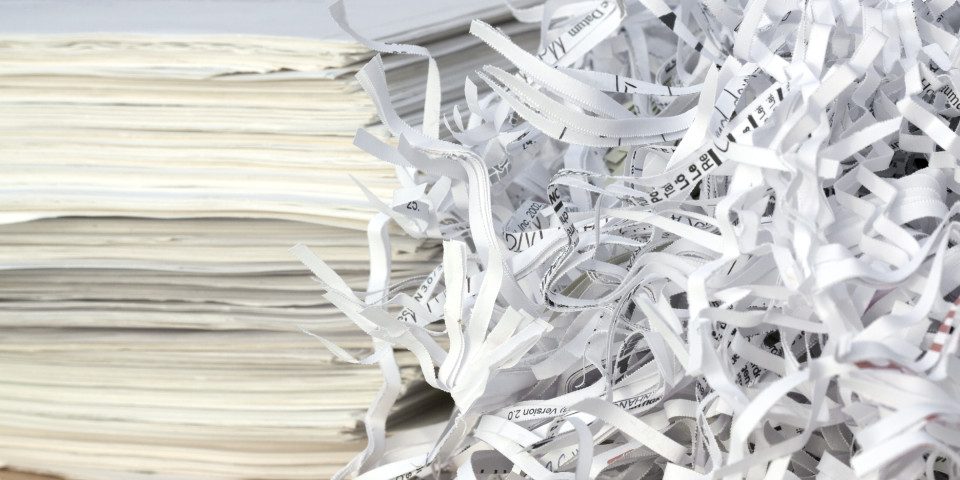Shredding Vs. Recycling – Which is more secure?

How to keep your Employees from being your Biggest Security Risk
July 6, 2017A common misconception is that paper recycling, often referred to as “pulping’ is a secure method of destroying sensitive documents. Any organization that selects recycling as an alternative for secure information destruction should think again and re-evaluate the risks and their obligation.
Business and organization should mull over the following when determining how to properly protect customers, clients, patients and themselves from the risk of an information data breach:
- Access to scrap paper facilities is generally not restricted or monitored.
- Generally, scrap paper companies are not obligated to screen employees.
- There is usually no documented acceptance of fiduciary responsibility between the scrap paper company and the transport companies that haul it to the paper mill or between the paper mill and their employees or between the organization/business and the paper mill.
- The “who”, “what”, “where”, and “when” documentation necessary to demonstrate compliance is usually not provided by the paper mill.
- Paper mills are not in the business of security. Data protection is not part of their mission.
- Although pulping in itself is a thorough method of destruction, the process of maintaining high levels of security and protecting customers’ confidentiality is not a requirement for paper mills.
Outsourcing to a shredding service provider substantially increases the likelihood that all sensitive information that should be destroyed is destroyed. Contracting with a secure, onsite document destruction service provider, security and data protection is the number one goal!
Transporting whole, intact confidential documents and material creates an unnecessary risk that onsite destruction prevents. Imagine a scenario where a document collection truck carrying un-shredded documents is in an accident. Or the collection truck is left unlocked or unattended and confidential documents are exposed.

